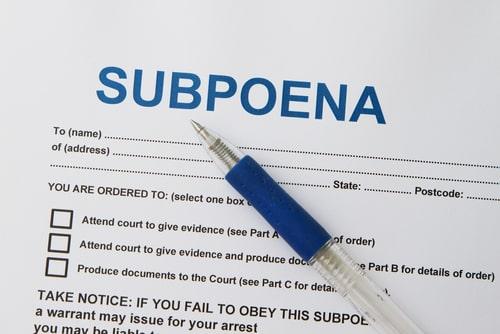Recent Blog Posts
I Have Been Asked to Create a Safety Plan. What Does This Mean?
 As a parent, one of your greatest goals in life is to keep your child safe. Family attorneys and the Illinois Department of Children & Family Services (DCFS) share this goal. Sometimes, keeping a child safe requires DCFS to remove a child from his or her parent's home or create a set of rules that the parent must follow to prevent the child from being harmed by his or her parent or any other individual present in that parent's home.
As a parent, one of your greatest goals in life is to keep your child safe. Family attorneys and the Illinois Department of Children & Family Services (DCFS) share this goal. Sometimes, keeping a child safe requires DCFS to remove a child from his or her parent's home or create a set of rules that the parent must follow to prevent the child from being harmed by his or her parent or any other individual present in that parent's home.
You might be asked to work with DCFS to create a safety plan for your child. Do not panic or become combative with the party asking you to agree to this plan – it is not an indictment against you as a parent, but a way DCFS can work to protect your child from a potentially-harmful situation. Work with your attorney and DCFS to create a safety plan that works for your child and you.
What Is a Safety Plan?
A safety plan is a set of actions that a child is to take if he or she feels he or she is in danger of harm. If DCFS determines during its investigation that a child cannot successfully carry out the actions of a safety plan, it might opt to remove the child from a household altogether. Examples of provisions that may be included in a safety plan include:
My Teen Is Having a Baby. What Are My Legal Obligations to the Baby?
 The prospect of a teenage son or daughter becoming a parent raises questions for an entire family. Where will the baby live? How will the baby's parents support him or her? And for many, who makes important financial, medical, and lifestyle decisions on the infant's behalf when his or her parents are minors themselves? Child custody decisions, whether they are in regard to your child or your grandchild, can be complicated.
The prospect of a teenage son or daughter becoming a parent raises questions for an entire family. Where will the baby live? How will the baby's parents support him or her? And for many, who makes important financial, medical, and lifestyle decisions on the infant's behalf when his or her parents are minors themselves? Child custody decisions, whether they are in regard to your child or your grandchild, can be complicated.
Even Teen Parents Have Full Parental Rights for Their Children Unless These Rights Are Terminated by the Court
Even if your child is under the age of 18 and unable to make legal decisions for him- or herself, he or she has full parental rights to his or her child. These rights include the right to consent to medical care throughout the pregnancy and birth, the right to make medical decisions for the baby after it is born.
If the baby's parents do not live together, either may go to the court to seek a custody arrangement. Like all other custody arrangements, the court determines the best place for the baby to live according to multiple factors, such as:
What Is a Subpoena?
 A subpoena is a written order for an individual to appear in court. In cases where the divorcing partners can cooperate with each other, subpoenas are often not necessary. But when the parties cannot get along, one party refuses to obey the court's orders, or one party is suspected of hiding assets from the other, the court may use a subpoena to require a divorcing individual to come to hearings and comply with its other requirements.
A subpoena is a written order for an individual to appear in court. In cases where the divorcing partners can cooperate with each other, subpoenas are often not necessary. But when the parties cannot get along, one party refuses to obey the court's orders, or one party is suspected of hiding assets from the other, the court may use a subpoena to require a divorcing individual to come to hearings and comply with its other requirements.
Receiving a subpoena can be confusing. If you are currently going through a divorce and you have received an order to appear, or your partner is not cooperating with the court and your divorce is becoming drawn out and draining your resources, talk about your subpoena and any related divorce issues with an experienced divorce attorney. A divorce consists of many elements and it can be difficult for an individual to keep track of each piece.
What Can a Subpoena Do?
A subpoena is used to call an individual to court. It can be used to require one of the divorcing partners to court or it can be used to require another individual to come to court to provide a testimony as part of the divorce process. For example, the guardian ad litem handling the couple's child custody determination might be subpoenaed to appear in court and provide his or her report of the couple's parenting abilities, resources, and his or her recommendation regarding their children's custody. Other individuals who might be subpoenaed can include those less closely involved in a couple's divorce, such as the couple's child's teacher to verify an allegation that one of the parents was three hours late picking the child up or the child's pediatrician to discuss how a parent handles the child's healthcare.
Parenting While Incarcerated in Illinois
 Parenting while incarcerated may seem like an impossibility. When a parent goes to prison, finding an appropriate custody situation for his or her child is a priority. In some cases, the child's other parent receives full custody of the child. In others, another living arrangement must be determined.
Parenting while incarcerated may seem like an impossibility. When a parent goes to prison, finding an appropriate custody situation for his or her child is a priority. In some cases, the child's other parent receives full custody of the child. In others, another living arrangement must be determined.
If you have been charged with a criminal offense and you are facing jail time, speak with an experienced family attorney about how your potential incarceration can affect your child and his or her current custody agreement. He or she can answer any questions you have about the possibility of spending time in jail and help you and your family develop a plan for custody and visitation if the need arises.
Pregnancy and Childbirth in Prison
Illinois is one of only four states to prohibit the shackling of female inmates during pregnancy and childbirth. Babies born to mothers who have access to Illinois' prison nursery programs may stay with their mothers until they reach 18 months of age. Otherwise, the infant may be given to his or her father or, if the father is not present or unfit to be a parent, with another relative. The child's mother may name a relative a short-term guardian for her child. This individual is given custody of the child for up to a year while the mother completes her jail term.
Non-Minor Support: Can I Be Required to Pay for My Child's College Education?
 Going to college after completing high school is more than just a popular choice for many young adults in the United States: it has become an expectation. As a parent, you naturally want to help your child in any way possible. But wanting to help your child is not the same as being legally required to help him or her. As your son or daughter reaches adulthood, you might be wondering whether you are required to pay for his or her college education as part of your child support obligation.
Going to college after completing high school is more than just a popular choice for many young adults in the United States: it has become an expectation. As a parent, you naturally want to help your child in any way possible. But wanting to help your child is not the same as being legally required to help him or her. As your son or daughter reaches adulthood, you might be wondering whether you are required to pay for his or her college education as part of your child support obligation.
There is no clear legal answer to this. In Illinois, there is no law that specifically states that a parent must pay for college expenses as part of his or her child support agreement. However, the Illinois Marriage and Dissolution of Marriage Act includes language that gives a judge the right to order that an individual parent contribute to his or her child's college costs. This section of the law also gives judges the power to determine how much a parent must pay. This is known as non-minor support.
Appointing a Standby or Short-Term Guardian for a Minor Child
 Generally, only a child’s parents or legal guardians have the authority to make decisions regarding the child’s care and well-being. To a certain extent, that authority even extends beyond the grave. Illinois law permits parents and guardians to appoint standby guardians, which allows them to decide who will care for their children if the worst happens. A standby guardian is someone who would immediately take on the care of minor children upon the passing of the parents or guardians.
Generally, only a child’s parents or legal guardians have the authority to make decisions regarding the child’s care and well-being. To a certain extent, that authority even extends beyond the grave. Illinois law permits parents and guardians to appoint standby guardians, which allows them to decide who will care for their children if the worst happens. A standby guardian is someone who would immediately take on the care of minor children upon the passing of the parents or guardians.
You may appoint a standby guardian in your will, but the law does not require the designation to be made this way. There are other legal forms that you can use instead. However, the content requirements are the same, no matter the type of document used:
The Illinois Rights of Married Persons Act
 Debt is often unavoidable for modern families, whether the debt accrues from credit cards, loans, college tuition or other necessary expenses. However, it is important to remember that marital debt is separate and distinct from personal debt. Illinois law recognizes that married persons can retain property acquired before the marriage as nonmarital property. Furthermore, the law allows married persons to acquire property during the marriage that belongs solely to them (property acquired by descent is one example). That distinction can be confusing for couples and for their creditors. Here are the relevant rules set forth in the Rights of Married Persons Act:
Debt is often unavoidable for modern families, whether the debt accrues from credit cards, loans, college tuition or other necessary expenses. However, it is important to remember that marital debt is separate and distinct from personal debt. Illinois law recognizes that married persons can retain property acquired before the marriage as nonmarital property. Furthermore, the law allows married persons to acquire property during the marriage that belongs solely to them (property acquired by descent is one example). That distinction can be confusing for couples and for their creditors. Here are the relevant rules set forth in the Rights of Married Persons Act:
1. Family expenses (including private school tuition and other education-related expenses) may be considered the property of both spouses, or of either them, in regards to creditors. The couple may face a lawsuit separately or jointly.
Pursuing a Dissipation Claim against Your Spouse in a Divorce Proceeding
 In 2012, an Illinois appellate court considered a dissipation case called In re Marriage of Berberet. Dissipation occurs when one or both spouses waste marital assets to prevent the other spouse from receiving those assets during a divorce. Under Illinois law, dissipation refers to a person’s use of marital property for his or her sole benefit for a purpose unrelated to the marriage at a time when the marriage is undergoing an irreconcilable breakdown.
In 2012, an Illinois appellate court considered a dissipation case called In re Marriage of Berberet. Dissipation occurs when one or both spouses waste marital assets to prevent the other spouse from receiving those assets during a divorce. Under Illinois law, dissipation refers to a person’s use of marital property for his or her sole benefit for a purpose unrelated to the marriage at a time when the marriage is undergoing an irreconcilable breakdown.
Berberet involved several issues related to dissipation. For example, the wife claimed dissipation when the husband took a trip with their children during the divorce proceedings, in addition to a solo hunting trip and a trip to Las Vegas. The court found that these trips did not constitute dissipation because they were not unusual or inconsistent with the lifestyle established during the marriage. In fact, the husband had taken similar trips in the past, and the wife had also taken similar trips with the children.
Unmarried Couples and Palimony in Illinois
 Illinois does not recognize alimony between unmarried couples, commonly referred to as palimony. Palimony, similar to alimony (maintenance), is an arrangement whereby one partner makes support payments to the other partner after the relationship ends. This law was established by the Illinois Supreme Court in 1979. However, a state appellate court recently held that the Supreme Court’s decades-old decision has been rendered obsolete.
Illinois does not recognize alimony between unmarried couples, commonly referred to as palimony. Palimony, similar to alimony (maintenance), is an arrangement whereby one partner makes support payments to the other partner after the relationship ends. This law was established by the Illinois Supreme Court in 1979. However, a state appellate court recently held that the Supreme Court’s decades-old decision has been rendered obsolete.
The appellate case involves domestic partners (Jane and Eileen) who met in the 1980s. During their years together, the couple raised and cross-adopted three children. They also merged their finances, purchased real estate and registered as domestic partners in Cook County in 2003. After the relationship ended in 2008, Jane moved out of the house that they had purchased together. Two years later she filed a petition seeking to divide the value of the house. Eileen filed a counterclaim, arguing that she should have sole title since she had been a stay-at-home mom while the children were young, Jane’s medical partnership was purchased with common funds and Eileen had assumed maintenance costs after Jane moved out.
Modifying or Terminating Maintenance Payments
 When a couple divorces, the court often orders one party to make maintenance (alimony) payments supporting his or her former spouse. Generally, this maintenance amount may only be modified or terminated if there has been a substantial change in either party’s circumstances. The court will consider various factors when considering a party’s petition for modification or termination, including:
When a couple divorces, the court often orders one party to make maintenance (alimony) payments supporting his or her former spouse. Generally, this maintenance amount may only be modified or terminated if there has been a substantial change in either party’s circumstances. The court will consider various factors when considering a party’s petition for modification or termination, including:
- Changes in employment status, and whether the change was made in good faith (i.e., if the receiving spouse quits his or her job for no reason and then seeks additional maintenance, that change was not made in good faith);
- Whether the receiving spouse is making reasonable efforts to become self-supporting;











